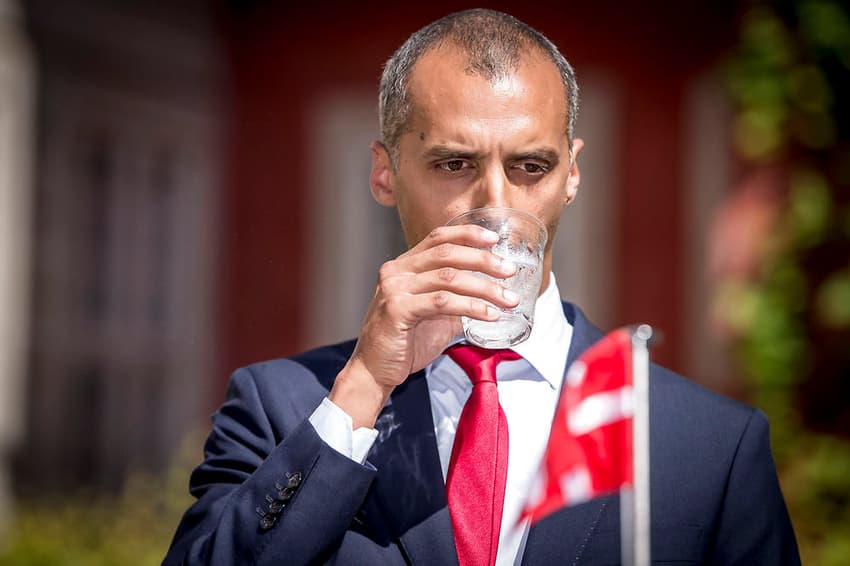EU ruling overturns 138 Danish family reunification rejections

An EU ruling that a now-scrapped Danish immigration rule was illegal could lead to the reopening of 138 cases involving Turkish applicants for family reunification.
In cases dating back to 2003, Denmark rejected applications for residency on the basis of family reunification for Turkish citizens due to a now-defunct rule known as the ‘association' or 'attachment' clause (tilknytningskravet) which formed part of Danish immigration law until last year.
The clause enabled family reunification to be rejected on the grounds that the couple had a closer connection to the source country of the applicant than to Denmark.
But the use of an ‘attachment clause' in this way is illegal, according to a June ruling by the Court of Justice of the European Union (CJEU).
Since the 1960s, Turkey has had an agreement in place with the EU which provides for it to be treated as if it was a member state in relation to certain areas. It is this agreement—the Ankara Agreement—that was infringed by the Danish family reunification decisions.
Family reunification can be applied for by persons who are partners or immediate family members of individuals already resident in Denmark.
A legal assessment by Denmark’s immigration and justice ministries has now concluded that 138 partners of Turkish people resident in Denmark, whose family reunification applications were rejected from 2011 onwards, are entitled to have those cases reopened, Minister for Immigration and Integration Mattias Tesfaye confirmed in a parliamentary notification on Monday.
Politicians had expressed concern that up to 8,000 cases could have been reopened as a result of the CJEU ruling, Ritzau writes.
But that was not the conclusion of the legal assessment by the Danish ministries, which found that the impact of the ruling is limited to Turkish citizens encompassed by the Ankara Agreement.
Additionally, the assessment found that the CJEU judgement can only affect retrospective cases and will not impact current immigration rules.
READ ALSO: Denmark illegally refused family reunification of Turkish nationals: EU court
Comments
See Also
In cases dating back to 2003, Denmark rejected applications for residency on the basis of family reunification for Turkish citizens due to a now-defunct rule known as the ‘association' or 'attachment' clause (tilknytningskravet) which formed part of Danish immigration law until last year.
The clause enabled family reunification to be rejected on the grounds that the couple had a closer connection to the source country of the applicant than to Denmark.
But the use of an ‘attachment clause' in this way is illegal, according to a June ruling by the Court of Justice of the European Union (CJEU).
Since the 1960s, Turkey has had an agreement in place with the EU which provides for it to be treated as if it was a member state in relation to certain areas. It is this agreement—the Ankara Agreement—that was infringed by the Danish family reunification decisions.
Family reunification can be applied for by persons who are partners or immediate family members of individuals already resident in Denmark.
A legal assessment by Denmark’s immigration and justice ministries has now concluded that 138 partners of Turkish people resident in Denmark, whose family reunification applications were rejected from 2011 onwards, are entitled to have those cases reopened, Minister for Immigration and Integration Mattias Tesfaye confirmed in a parliamentary notification on Monday.
Politicians had expressed concern that up to 8,000 cases could have been reopened as a result of the CJEU ruling, Ritzau writes.
But that was not the conclusion of the legal assessment by the Danish ministries, which found that the impact of the ruling is limited to Turkish citizens encompassed by the Ankara Agreement.
Additionally, the assessment found that the CJEU judgement can only affect retrospective cases and will not impact current immigration rules.
READ ALSO: Denmark illegally refused family reunification of Turkish nationals: EU court
Join the conversation in our comments section below. Share your own views and experience and if you have a question or suggestion for our journalists then email us at [email protected].
Please keep comments civil, constructive and on topic – and make sure to read our terms of use before getting involved.
Please log in here to leave a comment.